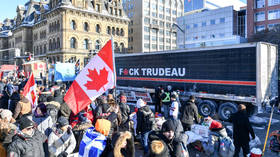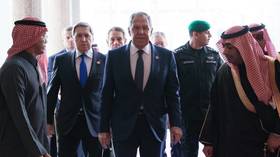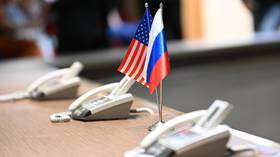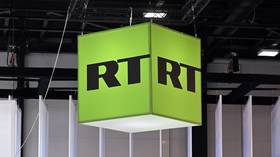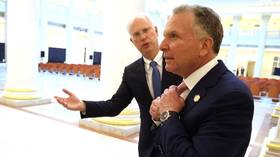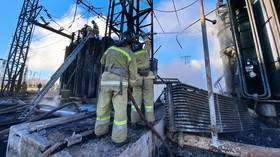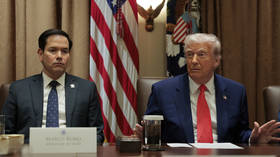Trudeau strikes deal to remain in power
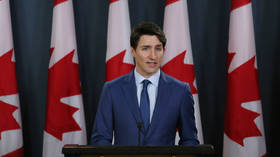
Canadian Liberal Prime Minister Justin Trudeau has negotiated an agreement with the left-leaning opposition New Democratic Party to maintain power through 2025, despite the widespread unpopularity of his government.
The leader announced a “supply-and-confidence” pact with the NDP on Tuesday, telling reporters the coalition government would bring “stability” to Canadian politics.
The agreement means Trudeau’s Liberal Party will not only remain in power for the full four-year term but that the NDP will back its positions on budgets and confidence votes. Together, the two parties have 184 votes in the 338-seat House of Commons – 14 more than the majority they need – and will permit the coalition to remain in power for the full term.
Issues said to be on the table included a dental care program for low income families, combating climate change, and ending public financing of the fossil fuel industry.
NDP leader Jagmeet Singh insisted his party was “not going to let the Liberal government off the hook.”
However, the opposition Conservative Party found the coalition agreement to be a “callous attempt by Trudeau to hold on to power,” with interim leader Candice Bergen saying “Canadians did not vote for an NDP government” and calling the result “little more than backdoor socialism.” Yves-Francois Blanchet of the Bloc Quebecois had a similar opinion, calling the agreement a “false majority.”
A poll conducted last month during the Freedom Convoy trucker protests against vaccination mandates for drivers who cross the border for work found just 29% of residents believed the PM had behaved “like a prime minister should” during the protest, with less than half determining he was “up to the job of being prime minister.” Just 16% said they would vote for him based on his actions in the preceding two weeks.
Trudeau’s heavy-handed response to the demonstration – freezing the bank accounts and seizing other assets of protesters – was seen as government overreach even by some who had not supported the truckers’ protest itself.
The PM has also been widely criticized for his government’s response to the pandemic, with ultra-strict border controls keeping some families apart for over two years. By last month, a survey found more than half of Canadians supported an immediate stop to all pandemic restrictions, and as the truckers camped out in Ottawa for weeks, provincial governments began quietly rolling back the measures.
Trudeau called a snap election last September in the hope of obtaining a parliamentary majority. However, he failed to secure a majority, even as he claimed the election represented a clear mandate for his party going forward.
